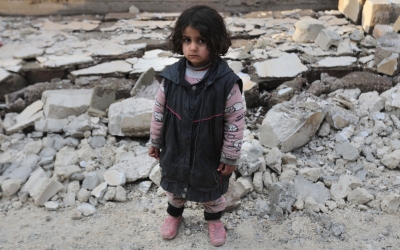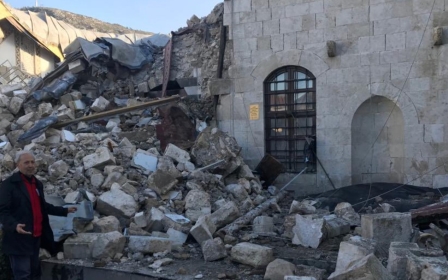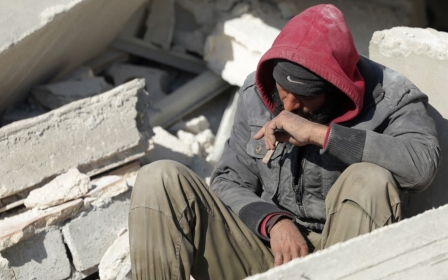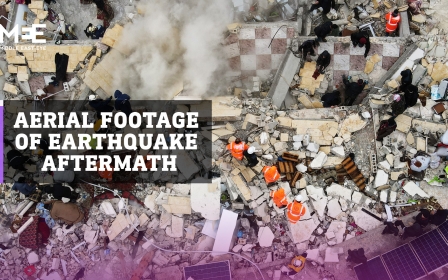Turkey-Syria earthquake: Hope for survivors fades as death toll passes 20,000
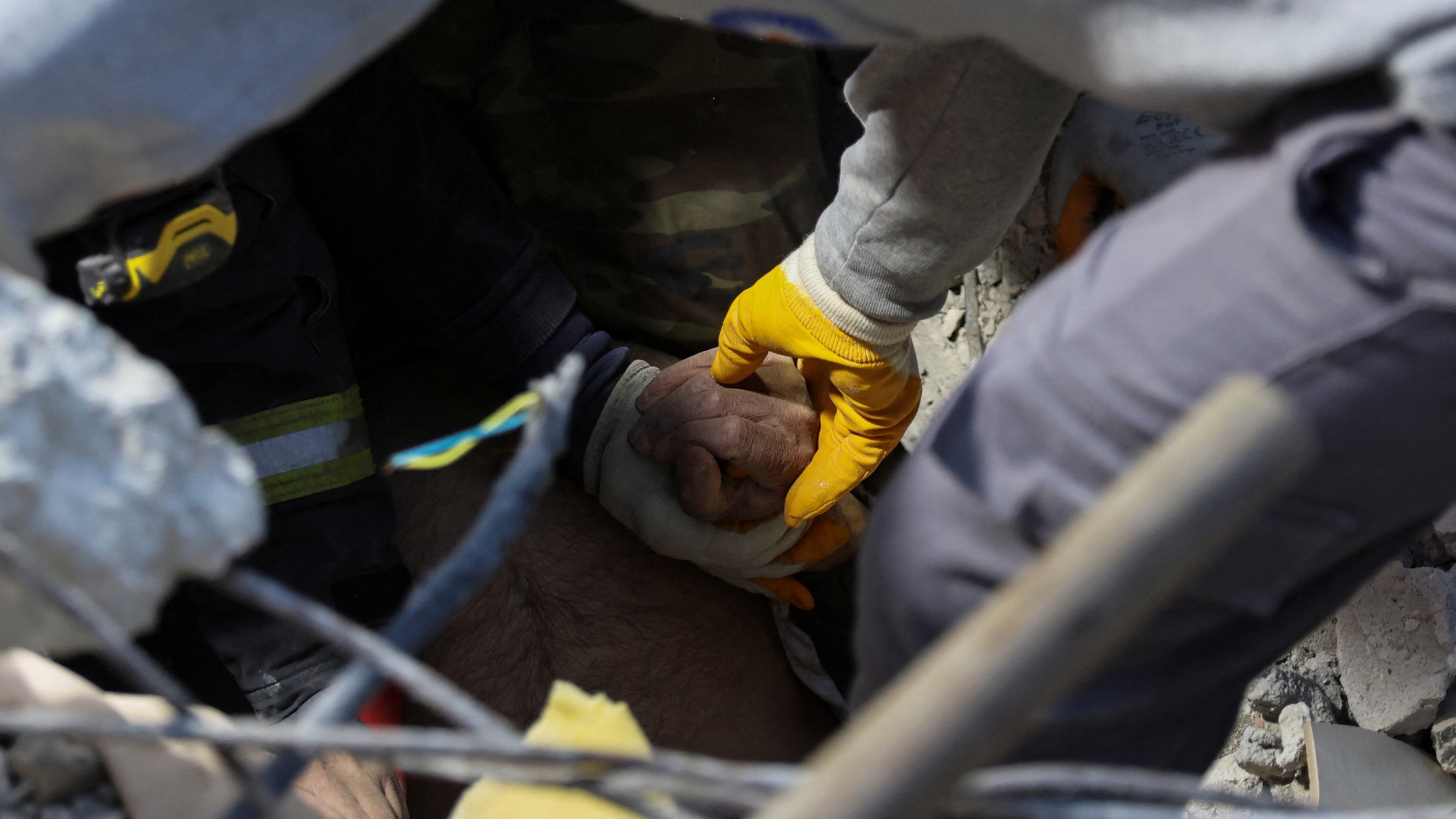
The likelihood of finding people alive is falling with every passing hour in quake-hit Turkey and Syria, as emergency workers fight time and cold weather while digging for survivors under thousands of levelled buildings.
The death toll climbed to over 20,000 on Thursday night, GMT, with 17,134 killed in Turkey; 1,347 in government-controlled Syria; and 1,970 in opposition-controlled areas. More than 70,000 have been injured in neighbouring countries.
Experts say 90 percent of survivors under the rubble are found in the first 72 hours, a window that closed early Thursday morning.
"We are at a critical point... Time is running out, hundreds of families are still stuck under the rubble. Every second means saving a life," the Syria Civil Defence (White Helmets) volunteer rescue group operating in opposition-controlled areas of northwest Syria, said early in the day.
Those under rubble who survive fatal injuries face another threat to their lives after the three-day mark: cold weather and a lack of food and water.
Emergency services are desperately seeking to get medical attention and sustenance to as many people as possible under collapsed buildings before they succumb to hypothermia or their bodies fail.
Temperatures in the areas hit by the quake in southeastern Turkey and northwest Syria have dropped to single digits during the day and below zero at night this week.
In the Turkish city of Gaziantep, the temperature fell to minus five degrees Celsius early Thursday.
Gaziantep was struck by the first 7.8-magnitude quake on Monday, which was followed by a 7.5-magnitude earthquake in the Kahramanmaras province shortly after.
Despite fading hope, some children were rescued on Thursday, including a two-year-old boy pulled from under the rubble after 79 hours in Turkey’s Antakya, and three siblings were saved in northwest Syria.
Meanwhile, hundreds of thousands of survivors in both countries have been left homeless, seeking shelter in car parks, gyms and mosques, desperately seeking food and warmth.
UN aid 'disappointing'
Despite the outpouring of donations and volunteering efforts, delivery of aid to northwest Syria remains a major obstacle.
UN Secretary General Antonio Guterres on Thursday said he would be "very happy" if the United Nations could use more than one border crossing to deliver aid to war-torn territory.
Bab al-Hawa is the only international aid corridor from Turkey to Syria.
'We are disappointed at a time when we are desperate for equipment that will help us save lives from under the rubble'
- Syria Civil Defence
UN aid has not entered northwest Syria since the devastating earthquakes because Turkish border guards at Bab al-Hawa had been personally impacted by the earthquake.
On Thursday evening, the first aid convoy reached the region through Bab al-Hawa, according to AFP.
However, it was a routine delivery, according to Syria Civil Defence.
“The UN is not delivering the aid that we are in most need of to help us save lives with time running out,” Raed al- Saleh, who leads the Syria Civil Defence, told Reuters.
“We are disappointed at a time when we are desperate for equipment that will help us save lives from under the rubble,” the group said on Twitter.
Investigation launched
In Turkey, rescue efforts received a boost after the restoration of Twitter early Thursday.
Turkish authorities restricted access to the social media platform on Wednesday over alleged earthquake misinformation.
The throttling of the social media platform sparked outrage given the platform's crucial role in coordinating rescue efforts and providing news updates.
President Recep Tayyip Erdogan, who visited the affected areas on Thursday, had acknowledged "shortcomings" in his government’s response to the earthquakes.
He said the three-month state of emergency in 10 provinces impacted by the quake will come into effect on Thursday and will be used to crack down on "seditious groups" that seek to exploit the aftermath of the quake, and "prevent looting in markets".
Justice Minister Bekir Bozdag also announced that an investigation has been launched over possible neglect and faults in the collapsed buildings.
Middle East Eye delivers independent and unrivalled coverage and analysis of the Middle East, North Africa and beyond. To learn more about republishing this content and the associated fees, please fill out this form. More about MEE can be found here.


